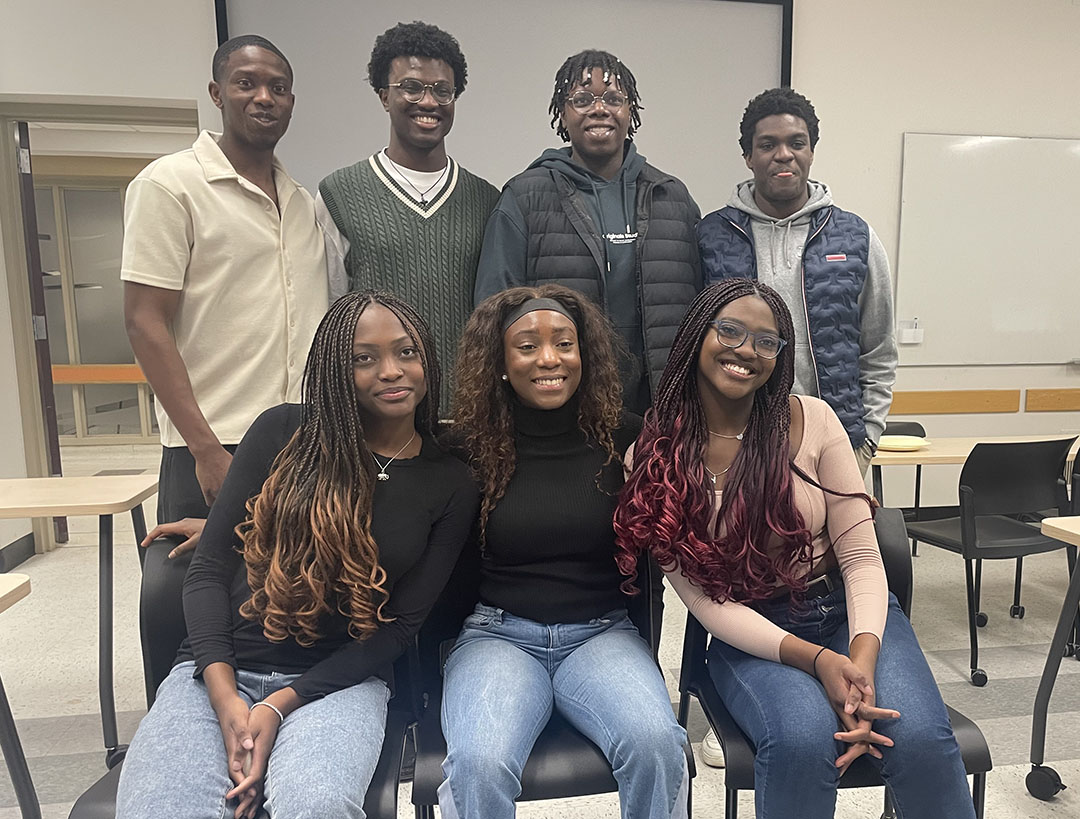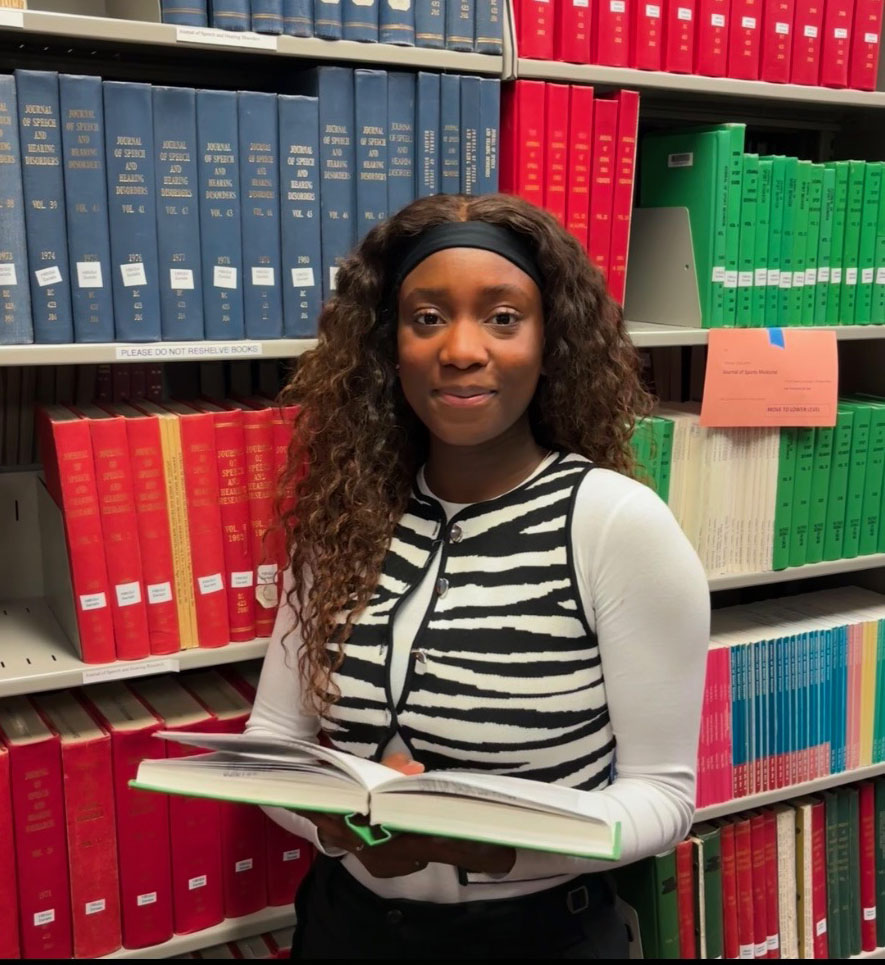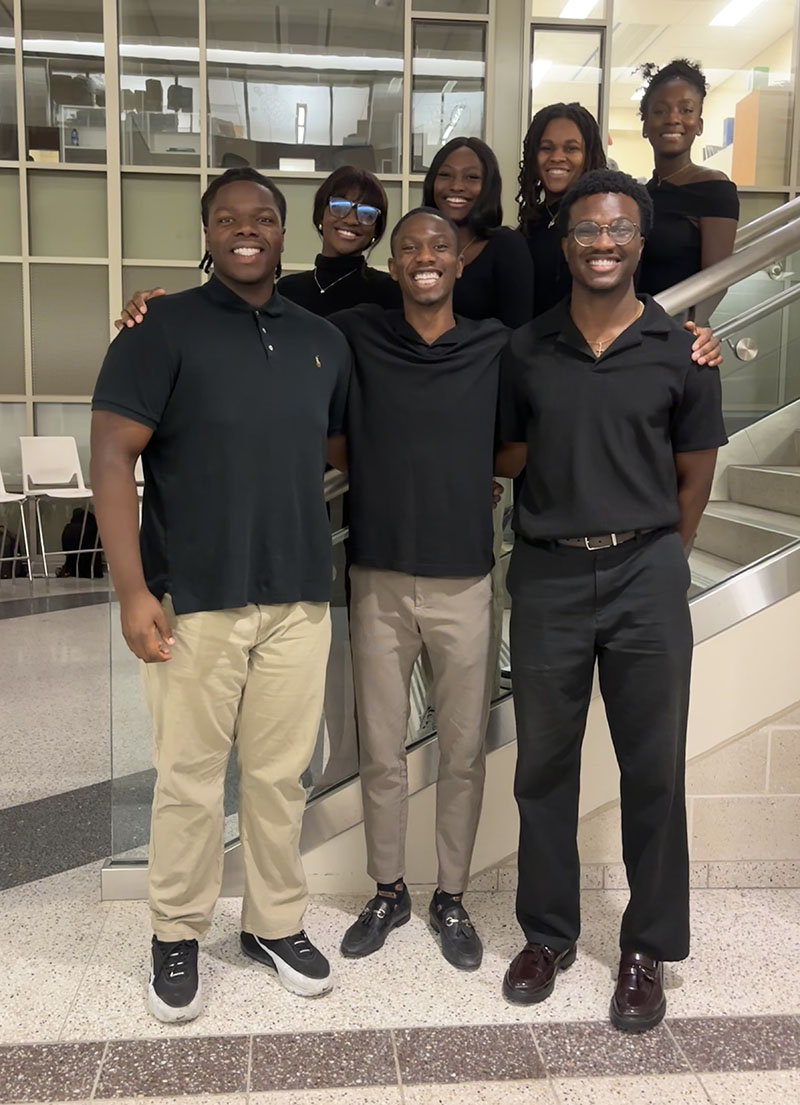
Kinesiology student leads startup of Black Students Mentorship Association at USask
University of Saskatchewan (USask) fourth-year kinesiology student Sophia Abiara has taken the lead on launching a brand-new association on campus dedicated to providing a space for Black students to meet with Black mentors.
By Alyssa WiebeThe Black Students Mentorship Association started in January 2024 with Abiara leading the charge. She had immediate support from USask students Oluwatomi Akinwuntan, Peter Laosebikan, Fehintolu Laosebikan, Yetunde Ige, David Emmanuel, Oluwatoni Akinwuntan and Adesewa Ige, who make up the association’s executive team.
The association’s main purpose is to create a sense of community by allowing one-on-one interactions with professionals such as doctors, lawyers, professors, and accountants, and learning how they’ve thrived in specific industries despite being marginalized.
“Being a minority, the odds often seem to stack against you. Having professionals to guide the way is an important step to reinforcing the fact that being Black is not a weakness but a strength,” said Sophia Abiara.

“Feeling lost is common in university so the mentorship aspect also helps with creating exposure to the plethora of careers that are out there, and the various routes that exist to reaching them. Engaging with Black mentors is important for taking a strength-based approach to empower the Black staff and students at the university.”
Abiara was born in Lagos, Nigeria and moved to Toronto before settling in Tisdale, Sask.
“When I moved to Tisdale, I was the only Black female in my high school. This naturally came with cliché questions about my hair. While some people were respectful and intentional with the way they inquired about my heritage, others were not polite.”
Members of the association are tasked with the duties that are involved with running the daily demands of an association, this helps them develop skills that can then be taken into the workforce and professional colleges.
As an example, one of the events was conducted in collaboration with the Engineering Students’ Association and Dr. Akindele Odeshi (PhD), the associate dean academic and professor of mechanical engineering, who is committed to student mentorship. This provided an opportunity for members to develop professional collaboration skills as well as financial responsibility that can be applied in other professional spaces.
“Collaboration between experienced professionals and students is crucial in carving a future that includes a diverse group of leaders,” Abiara said.
When Abiara founded the association, she not only used her own observations as a Black woman on campus, but also through research. She found data from a 2020 Toronto Metropolitan University’s diversity leads report that the Black representation on corporate boards was only 0.3 per cent. She noted that improvements have been made since then, but are still bleak.
“My hope for the association is to develop well-rounded Black students who can transfer these skills into the workforce. Not just to be employees but to lead and be actively involved in outreach efforts for racialized individuals and marginalized communities. My hope for the University of Saskatchewan is to see more BIPOC (Black, Indigenous and people of colour) women in leadership roles such as university governance and within each college.”

The association is currently working on organizing events for the second semester, especially during Black History Month. They are focused on highlighting Black women in the community with the goal to increase the amount of direct contact that students have with the women the community is bringing in.
They have partnered with a network of Black professionals in rural and urban Saskatchewan as well as the Black Faculty and Staff Caucus at USask.
“Overall, being a Black woman in Canada comes with a wide range of battles,” she said. “While I cannot change the outlook of the ignorant people in this province, I can create change and create awareness in my immediate community.”
Abiara has been conducting research in the College of Kinesiology since her second year and has a strong interest in pursuing research throughout the remainder of her undergraduate degree and into post-graduate students.
As a final message to everyone, Abiara would like to remind people to be true to themselves in an ever-evolving world.
“I would also like to remind all Black women, girls and gender diverse individuals that they will always be more than enough.”
Those interested in joining the association can sign up here or contact them at bsma@ussu.ca.
Together we will support and inspire students to succeed. We invite you to join by supporting current and future students' needs at USask.

